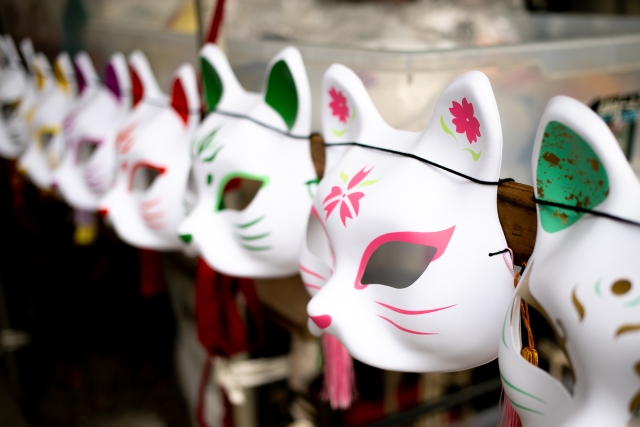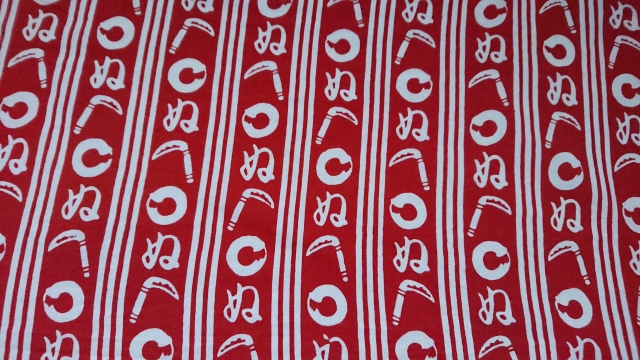Introduction

“Step into the enchanting and whimsical world of ‘Last Period: The Journey to the End of the Despair,’ an anime that masterfully blends elements of fantasy and comedy. The series offers a fresh and playful take on traditional fantasy tropes, setting itself apart with its unique premise and charming characters.
‘Last Period’ is set in a world where magical beings called ‘Spirals’ threaten peace and stability. To combat these creatures, individuals known as ‘Periods’ are trained to battle and eliminate the Spirals. The story centers on Haru, a young and optimistic Period, who dreams of making a difference in the world. However, things take a surprising turn when the organization he belongs to goes bankrupt, leaving Haru and his friends to fend for themselves and continue their mission without the support of their guild.
Haru’s journey is filled with both comedic misadventures and heartfelt moments. His unwavering optimism and determination to fight against despair drive the narrative forward. Alongside Haru are his loyal and quirky companions: Choco, a cheerful and somewhat naive girl with a love for sweets; Liza, a no-nonsense and pragmatic Period who often finds herself cleaning up the messes left by Haru and Choco; and Gajeru, a timid yet kind-hearted creature who provides much of the comic relief in the series. Each character brings their unique traits and perspectives, adding depth and humor to the story.
The series excels in its ability to balance light-hearted comedy with deeper, more meaningful themes. The playful interactions between the characters and the often absurd situations they find themselves in provide plenty of laughs. However, beneath the surface, ‘Last Period’ also explores themes of perseverance, friendship, and the fight against despair. This combination of humor and heart makes the series a standout in the fantasy-comedy genre.
One of the most distinctive aspects of ‘Last Period’ is its meta-humor and parody of gacha game mechanics. The series frequently breaks the fourth wall, poking fun at the tropes and conventions of mobile games, from randomized character draws to in-game currency. This self-awareness adds an extra layer of enjoyment for viewers familiar with gacha games, while still being accessible to those new to the concept.
As Haru and his friends navigate their way through various challenges, from battling Spirals to dealing with the eccentric characters they meet along the way, the series keeps viewers engaged with its blend of action, humor, and touching moments. The animation style is vibrant and colorful, perfectly complementing the light-hearted tone of the series, while the soundtrack adds an extra dimension of excitement and emotion.
In essence, ‘Last Period: The Journey to the End of the Despair’ offers a refreshing and entertaining take on the fantasy genre. Its unique premise, memorable characters, and balance of comedy and heartfelt storytelling make it a must-watch for anime fans. Whether you’re looking for a good laugh, an engaging adventure, or a story with deeper themes, ‘Last Period’ delivers on all fronts. Join Haru and his friends on their whimsical journey and discover why this series has captured the hearts of viewers around the world.”
Plot Overview

“Last Period: The Journey to the End of the Despair” offers an enchanting blend of fantasy and comedy, following the journey of Haru and his quirky companions. The main storyline centers around Haru, a young and hopeful Period, whose life takes an unexpected turn when his organization goes bankrupt. This leaves Haru and his friends to continue their mission to combat the Spirals, malevolent creatures that threaten the world, without any support from their guild.
Haru, driven by his unwavering optimism, sets out with his loyal friends: Choco, a cheerful girl with a sweet tooth and an endless supply of enthusiasm; Liza, a pragmatic and no-nonsense Period who often finds herself managing the group’s antics; and Gajeru, a timid but kind-hearted creature who provides much of the comic relief. Together, they navigate a series of adventures, facing both humorous misadventures and challenging battles against the Spirals.
Key Episodes and Highlights
One of the standout episodes is the series’ premiere, where Haru and his friends discover that their guild has gone bankrupt. This episode sets the tone for the series, showcasing the blend of humor and fantasy that defines “Last Period.” Haru’s determination to keep fighting despite their dire circumstances introduces viewers to his resilient character and the playful dynamic within the group.
Another key episode involves the group’s encounter with Wiseman, a rival guild that is just as eccentric as Haru’s team. This episode is filled with hilarious moments as the two groups clash, each trying to outdo the other in both combat and absurdity. The interactions between Haru’s team and Wiseman highlight the series’ knack for blending comedic elements with action-packed sequences.
As the series progresses, Haru and his friends face various challenges that test their resolve and deepen their bond. In one particularly touching episode, the group helps a village plagued by Spirals, showcasing their willingness to aid others despite their own struggles. This episode not only underscores the theme of perseverance but also brings out the heartfelt moments that balance the series’ comedic tone.
The humor in “Last Period” often stems from its self-awareness and meta-commentary on gacha game mechanics. In several episodes, the characters break the fourth wall, referencing the randomness of character draws and in-game currency in a way that is both funny and relatable for viewers familiar with mobile games. These moments add an extra layer of enjoyment, making the series accessible to both seasoned gamers and general audiences.
One of the most memorable episodes features a parody of popular gacha game events, where Haru and his friends participate in a festival that mimics real-world game mechanics. The episode is a clever satire of the genre, filled with humorous nods to the frustrations and excitement of gacha games. It’s a perfect example of how “Last Period” uses its unique premise to create humor while still advancing the plot.
Throughout their journey, the characters’ development is evident. Haru’s optimism never wavers, but he learns to adapt to the challenges they face. Choco’s boundless energy becomes a source of strength for the team, while Liza’s pragmatism keeps them grounded. Gajeru’s timid nature slowly gives way to courage, especially when his friends are in danger.
Conclusion
“Last Period: The Journey to the End of the Despair” is a delightful series that combines fantasy and comedy to tell a story of perseverance and friendship. The journey of Haru and his friends is filled with laugh-out-loud moments and touching scenes that showcase their growth and the strength of their bond. Key episodes highlight the series’ unique ability to blend humor with heartfelt storytelling, making it a standout in the fantasy-comedy genre. Whether you’re a fan of fantasy adventures or enjoy a good laugh, “Last Period” offers a captivating and entertaining experience.
Character Analysis

“Last Period: The Journey to the End of the Despair” is rich with dynamic characters whose unique personalities and growth drive the narrative forward. The interactions between Haru, Choco, Liza, and Gajeru create a blend of humor and heartfelt moments that make the series truly engaging.
Haru Haru is the optimistic and determined protagonist of the series. As a young Period, he dreams of making a significant impact in the fight against Spirals. His unwavering positivity and enthusiasm are contagious, often lifting the spirits of his companions during challenging times. Throughout the series, Haru’s character develops as he faces numerous obstacles, learning the importance of resilience and adaptability. His interactions with his friends showcase his leadership qualities and his deep sense of responsibility, making him a compelling and relatable hero.
Choco Choco is the cheerful and somewhat naive member of the group, known for her love of sweets and her boundless energy. Her sunny disposition and innocent charm provide a stark contrast to the more serious moments in the series, adding a layer of light-heartedness to the narrative. Despite her playful nature, Choco shows remarkable courage and loyalty to her friends. Her development is marked by her growing understanding of the complexities of their journey and her increasing ability to contribute meaningfully to the group’s efforts. Choco’s interactions with Haru and the others often lead to comedic situations that highlight the series’ humorous undertones.
Liza Liza is the pragmatic and no-nonsense Period who often finds herself as the voice of reason within the group. Her practical approach to problems and her ability to stay calm under pressure make her an essential part of the team. Liza’s character is deepened by glimpses into her backstory, revealing a more vulnerable side and the reasons behind her disciplined demeanor. Her development involves learning to balance her seriousness with the more light-hearted aspects of their journey, often facilitated by her interactions with Haru and Choco. Liza’s dynamic with the group adds a grounding element to the series, making the comedic moments even more impactful.
Gajeru Gajeru, the timid yet kind-hearted creature, serves as the primary source of comic relief in the series. His fearful nature and tendency to panic in stressful situations contrast sharply with the bravery of his companions, leading to many humorous moments. However, Gajeru’s journey is one of quiet courage and gradual growth. Throughout the series, he learns to confront his fears and stand by his friends in times of need. Gajeru’s development is heartwarming, and his interactions with the other characters showcase themes of friendship and loyalty, enhancing both the comedic and emotional depth of the narrative.
Interactions and Narrative Contribution The interactions between Haru, Choco, Liza, and Gajeru are the heart of “Last Period.” Their diverse personalities create a dynamic that is both entertaining and emotionally resonant. Haru’s leadership and optimism inspire the group, while Choco’s playful energy and Liza’s practicality keep them balanced. Gajeru’s journey towards bravery provides a continuous thread of growth and development.
Key episodes highlight these interactions, such as the group’s efforts to help a village plagued by Spirals or their comical clashes with rival guilds. These moments not only advance the plot but also deepen the viewers’ understanding of each character and their relationships. The series expertly weaves humor into these interactions, ensuring that even the most serious moments are infused with a sense of camaraderie and fun.
Conclusion In summary, “Last Period: The Journey to the End of the Despair” thrives on the rich character dynamics and development of its main cast. Haru, Choco, Liza, and Gajeru each bring unique traits and perspectives that contribute to the overall narrative and comedic elements of the series. Their interactions and growth make the story engaging and relatable, blending fantasy and humor in a way that resonates with a broad audience. Whether you are drawn to Haru’s optimism, Choco’s cheerfulness, Liza’s pragmatism, or Gajeru’s endearing vulnerability, “Last Period” offers a compelling and entertaining character-driven adventure.”
Themes and Humor

“Last Period: The Journey to the End of the Despair” masterfully combines themes of perseverance, friendship, and the fight against despair with a unique blend of humor. This combination not only enhances the series’ appeal but also provides depth to its narrative, making it a standout in the fantasy-comedy genre.
Perseverance At the heart of “Last Period” is the theme of perseverance. The protagonist, Haru, along with his friends Choco, Liza, and Gajeru, face numerous challenges after their organization goes bankrupt. Despite the odds, Haru’s unyielding optimism and determination to continue their mission against the Spirals serve as a beacon of hope. This theme is evident in their relentless efforts to overcome obstacles, whether it’s battling powerful Spirals or navigating the complexities of their journey without the support of their guild. The series portrays perseverance not just as a heroic trait but as a necessary quality for personal growth and success.
Friendship Friendship is another central theme in “Last Period.” The bonds between Haru and his companions are a source of strength and support throughout the series. Each character brings unique qualities that complement the others, creating a dynamic that is both humorous and heartwarming. Their interactions highlight the importance of teamwork and mutual support, illustrating how true friendship can help individuals overcome even the most daunting challenges. The series effectively showcases the power of friendship through the characters’ loyalty, sacrifices, and unwavering support for one another.
Fight Against Despair The series also delves into the theme of the fight against despair. Haru and his friends are often confronted with situations that could easily lead to hopelessness. However, their collective spirit and determination to push through adversity exemplify their resistance to despair. This theme is intricately woven into the storyline, demonstrating how resilience and a positive mindset can turn the tide in seemingly dire circumstances. The characters’ journey is a testament to the idea that, no matter how bleak the situation, there is always hope and a reason to keep fighting.
Humor as a Narrative Tool Humor plays a crucial role in “Last Period,” serving as a vehicle to explore and address its major themes. The series uses humor to lighten the mood, making the heavier themes more accessible and relatable. For instance, the comedic antics of Gajeru, the timid creature, provide a humorous contrast to the serious battles they face, adding a layer of levity that balances the narrative. Haru’s relentless optimism often leads to absurd situations that are both funny and endearing, showcasing the series’ ability to blend humor with meaningful storytelling.
Meta-Humor and Satire One of the standout features of “Last Period” is its use of meta-humor and satire, particularly in its commentary on gacha game mechanics. The series frequently breaks the fourth wall, with characters referencing the randomness of character draws and the frustrations of in-game currency. These humorous elements resonate with viewers familiar with mobile games, adding an extra layer of enjoyment and relatability. The satire not only entertains but also subtly critiques the mechanics of gacha games, making the humor both engaging and thought-provoking.
Balancing Comedy and Heart The balance of comedy and heartfelt moments is a hallmark of “Last Period.” While the series is filled with laugh-out-loud scenarios, it never shies away from exploring deeper emotional themes. Episodes that focus on the characters’ backstories and personal struggles add emotional depth, making the comedy even more impactful. This balance ensures that the humor enhances, rather than undermines, the narrative, creating a rich and multi-faceted viewing experience.
Conclusion In summary, “Last Period: The Journey to the End of the Despair” excels in blending major themes of perseverance, friendship, and the fight against despair with a unique brand of humor. The series uses comedy not just for entertainment but as a means to explore and address these themes, making the narrative both engaging and meaningful. The humor, whether through character interactions or meta-commentary on gacha games, adds depth and appeal, ensuring that the series resonates with a diverse audience. Whether you’re drawn to its fantasy elements, its comedic moments, or its heartfelt themes, “Last Period” offers a compelling and enjoyable experience.
Cultural Impact and Reception

“Last Period: The Journey to the End of the Despair” has left a significant mark within the fantasy-comedy genre, earning praise from both audiences and critics alike. The series’ unique blend of humor, heartfelt storytelling, and its fresh take on traditional fantasy tropes have garnered it a dedicated fan base and critical acclaim.
Audience and Critical Reception Since its release, “Last Period” has been well-received by anime enthusiasts for its engaging narrative and distinctive comedic style. Viewers have particularly appreciated the series’ ability to balance light-hearted humor with deeper themes of perseverance and friendship. The playful interactions between Haru and his companions, coupled with the series’ self-aware humor, have resonated strongly with fans. Critics have also lauded the show for its clever writing and character development, noting how it manages to keep the storyline entertaining while delivering meaningful messages.
The meta-humor and satire on gacha game mechanics have struck a chord with viewers familiar with mobile games, adding an extra layer of enjoyment. This clever commentary not only entertains but also provides a critical look at the mechanics of gacha games, making the humor both engaging and thought-provoking.
Impact Within the Fantasy-Comedy Genre “Last Period” has carved out a unique niche within the fantasy-comedy genre. Its success lies in its ability to subvert traditional fantasy tropes while maintaining the core elements that fans love. The series’ parody of gacha game mechanics is a standout feature, offering a fresh perspective that sets it apart from other fantasy comedies. This self-awareness and willingness to poke fun at genre conventions have contributed to its popularity and critical success.
The show’s impact can be seen in how it has influenced other series to explore similar blends of humor and fantasy. By demonstrating the effectiveness of combining slapstick comedy with heartfelt storytelling, “Last Period” has set a new standard for what fantasy-comedy anime can achieve. Its success has encouraged more creators to experiment with this blend, enriching the genre with more innovative and entertaining narratives.
Appeal to a Diverse Audience One of the strengths of “Last Period” is its broad appeal. The series’ humor and engaging characters attract a wide range of viewers, from fans of slapstick comedy to those who enjoy deeper, emotionally-driven stories. The dynamic between Haru, Choco, Liza, and Gajeru provides something for everyone, whether it’s Haru’s unwavering optimism, Choco’s playful energy, Liza’s practicality, or Gajeru’s endearing vulnerability.
The series’ ability to parody and reference gacha game mechanics also makes it particularly appealing to gamers and fans of mobile games. These elements add a layer of relatability and entertainment for viewers who are familiar with the gaming world, while still being accessible to those who are not.
Unique Take on Traditional Fantasy Tropes “Last Period” stands out for its unique take on traditional fantasy tropes. While it incorporates common elements such as magical creatures and epic battles, it does so with a twist. The bankruptcy of the protagonist’s organization and their subsequent struggle to continue their mission without support is a refreshing departure from the usual fantasy narratives of grand quests and powerful heroes.
The series also subverts expectations through its characters and their development. Each character’s growth is portrayed with a mix of humor and sincerity, providing a fresh perspective on their respective archetypes. For example, Haru’s journey is not just about becoming a stronger fighter, but also about learning the value of resilience and adaptability in the face of adversity.
Conclusion In summary, “Last Period: The Journey to the End of the Despair” has made a notable cultural impact within the fantasy-comedy genre. Its clever blend of humor, heartfelt storytelling, and unique take on traditional fantasy tropes have resonated with a diverse audience, earning it both critical and popular acclaim. The series’ meta-humor and satire on gacha game mechanics add an extra layer of enjoyment, making it a standout in the genre. Whether you are a fan of fantasy adventures, comedic narratives, or innovative storytelling, “Last Period” offers a captivating and entertaining experience that continues to leave a lasting impression.








